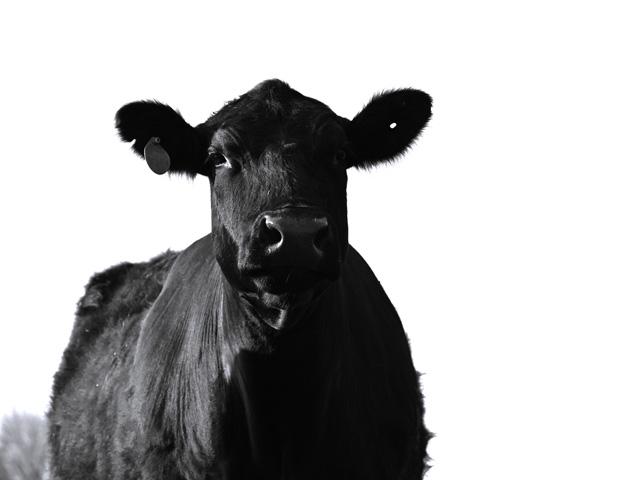
A bearish sentiment dominated the futures oil market to start the week Monday after last week's gains due to mixed data from China confirming…
Barney Bahrenfuse and Suzanne Castello, who farm near Grinnell, Iowa, are recipients of Practical Farmers of Iowa's 2025 Sustainable Achievement…
Editor’s Note: This story, originally published Dec. 13, was updated with comments from U.S. Chief Veterinary Officer Rosemary Sifford at 2:38 p.m. Dec. 14.
**
REDFIELD, Iowa (DTN) — Keeping New World screwworm (NWS) out of the United States is a priority for USDA’s Animal and Plant Health Inspection Service (APHIS). APHIS announced $165 million in emergency funding has been secured from the Commodity Credit Corporation to protect the country’s livestock and other animals.
On Nov. 22, the Chief Veterinary Officer of Mexico notified APHIS of a positive NWS detection in a cow in extreme southern Mexico. During the past two years, NWS has spread throughout Panama, Costa Rica, Nicaragua, Honduras and Guatemala.
Given the severity of the threat from NWS, APHIS restricted the importation of animal commodities, including live cattle, from or transiting through Mexico following the notification.
In a statement to DTN on Dec. 13, U.S. Chief Veterinary Officer Rosemary Sifford said that upon detection of New World screwworm (NWS) in Mexico on Nov. 22, USDA suspended trade in cattle from Mexico pending implementation of an enhanced protocol to ensure they are free from NWS prior to entering the U.S.
“Several media outlets are reporting that imports of live cattle and bison will resume before the holidays,” she said. “While the U.S. continues to work very closely with Mexico and has agreed to protocols, it will take some time to implement these due to multiple steps needed to resume trade, including facility inspections and approval.
“APHIS does not expect this to happen before the holidays, and shipments will likely resume incrementally after the New Year, with full resumption of live animal movements sometime after that,” she said.
Protecting American livestock from foreign pests is a top priority, and APHIS will only approve these measures when confident the threat of NWS crossing the border has been mitigated, she noted. APHIS will then announce when trade resumes.
FUNDS WILL HELP PREVENT THE SPREAD
Friday’s funding announced will help USDA work with Mexico and Central America to stop the spread of NWS farther north through Mexico and protect the U.S. through surveillance, animal health checkpoints and domestic preparedness. This will also help reestablish a biological barrier in Panama and eradicate NWS from the affected areas in Mexico and Central America.
“The current outbreaks in Central America demonstrate the need for USDA to increase its investment in NWS eradication and prevention,” USDA Under Secretary for Marketing and Regulatory Programs Jenny Lester Moffitt said in a news release.
“If NWS were to spread to the United States, it would result in significant economic losses and threats to animal health and welfare. This funding will allow for a coordinated emergency response to control the outbreak and prevent NWS from spreading to the United States,” she said.
LOOK FOR SYMPTOMS IN ANIMALS
NWS are fly larvae that infest living tissue of warm-blooded animals, causing infection. According to APHIS, the maggots will burrow into a wound, feeding as they go and causing extensive damage by tearing the host’s tissue with sharp mouth hooks. The wound becomes larger and deeper. NWS can cause serious, even deadly damage to the animal.
The adult screwworm flies are about the size of a common housefly with orange eyes, a metallic blue or green body, and three dark stripes along their backs.
Affected mammals and birds show signs of irritated behavior, head shaking, smell of decay, evidence of fly strike and presence of fly larvae in wounds.
APHIS says the best prevention of NWS in the U.S. is by avoiding infestation. Be alert for symptoms in pets and livestock, ensure that pets traveling internationally are inspected for screwworm, and check your vehicle for screwworm flies if in an NWS-infested area. Producers should notify herd veterinarians immediately if symptoms are seen.
Eradicating NWS is only possible through sterile insect technique. Iowa’s state entomologist Robin Pruisner told DTN the logistics and efficacy of releasing sterile male NWS works well, and the process has been used previously in the U.S. to eradicate the problem.
“The sterile insect technique (SIT) involves sterilizing millions of male insects using ionizing radiation before releasing them into the wild to mate with wild females,” she said. “As no offspring can be produced, the SIT leads to drastic reduction in the wild populations of the disease carrier while minimizing the use of pesticides.”
Since females only mate once, this helps eliminate the population. The SIT process has been used in Latin America this year.
Jennifer Carrico can be reached at jennifer.carrico@dtn.com
Follow her on social platform X @JennCattleGal
(c) Copyright 2024 DTN, LLC. All rights reserved.
Please correct the following errors and try again:
Please correct the following errors and try again:
